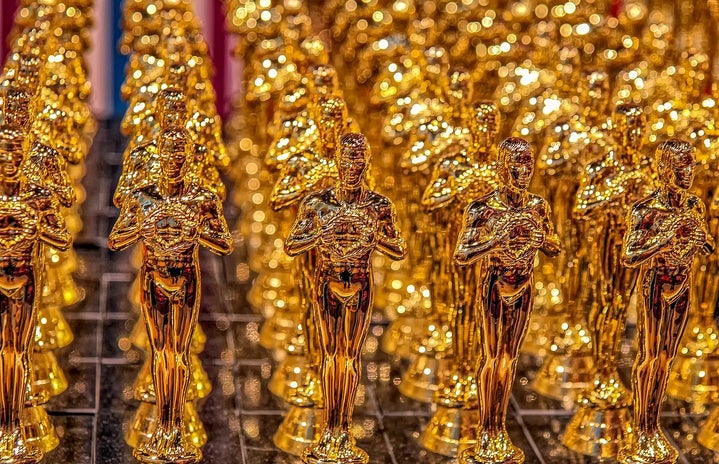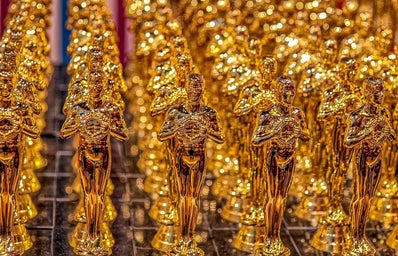It’s time to roll out the red carpets and ring in awards season in Hollywood. With the recent airing of the Golden Globes, Emmys, and Grammy’s, many directors, actors, singers, and creative professionals have already been honored with the most prestigious of awards for their craft.
As with any other year, the awards consisted of snubs, surprises, and well-deserved wins. However much fun it may be to celebrate the wins and mourn the losses of your favorite stars, it is important to recognize those who are absent from these events and the historic underrepresentation of minority creatives in the awards industry.
“The Academy” and other organizations dedicated to honoring artists in film, music, and media have been plagued by a lack of diversity since the inception of such institutions. In 2012 it was reported that a shocking 94% of Oscar voters were white and 77% were male. Since membership within the Academy includes a lifetime appointment, it is difficult to overcome the lack of representation among its members. In recent years, awards shows have come under intense scrutiny by celebrities and fans alike for the apparent disparities in nominations and awards.

The underrepresentation of Black and minority artists is especially evident year after year at the Oscars, and the Academy of Motion Picture Arts and Sciences has certainly come under fire within the last decade. Specifically, in 2015 after the release of nominations for Best Performance it was revealed that out of the 20 actors nominated, not a single one was a person of color. This lack of representation prompted April Reign to coin the hashtag #Oscarssowhite, which subsequently went viral on Twitter with fans and celebrities critiquing the overwhelming whiteness of the Oscars.
In 2016, the hashtag resurfaced when nominations again proved to be strongly dominated by white actors. With more fervor behind the campaign, celebrities such as filmmaker Spike Lee and actress Jada Pinkett Smith spearheaded a boycott of the Oscars. In response, the Academy promised to double the number of female and other minority members by 2020. As for how well the Academy is keeping its promise, it was recorded that in 2020, 45% were women and 36% were from minority racial and ethnic communities out of the 819 new members invited to join the voting body. While certainly an improvement, the roots of awards show discrimination go deeper than the shows themselves.
Minority actors, filmmakers, and musicians struggle to get the same recognition and funding as their white counterparts. Even the most successful Black musicians struggle to get recognition. For example, Beyonce, one of the most famous and awarded Black female artists when averaged against other white musicians actually wins less. Out of her 88 nominations, Beyonce has won 32 times as opposed to Adele who has won 16 times out of her 25 nominations.
This poignant fact was addressed by Jay-Z at the Grammys this past weekend when accepting his Dr. Dre Global Impact Award. During his acceptance speech, Jay-Z called out the Recording Academy for having never awarded Beyonce album of the year despite being one of the most decorated female artists of all time.
The Grammy’s certainly made strides toward representation especially of female artists in this year’s ceremony with 7 of the 8 nominations for album of the year being women. Furthermore, in another great feat, actress Quinta Brunson won best actress in a comedy series, becoming the first Black woman in over 40 years to have won the award.
However impressive these efforts may be, the industry continues to be criticized in 2024. Despite being the highest grossing film in 2023, Greta Gerwig and Margot Robbie were passed over for nominations including Actress in a Leading Role and Best Director, meanwhile the film’s white, male co-star Ryan Gosling was nominated for best supporting actor. It is clear that while progress has been made, there is still much room for improvement in the industry’s recognition of women and people of color.
If you’re in a mood to binge, Variety has a great list of films passed over for the Oscars including A Thousand and One which follows a young mother, depicted by actress Teyana Taylor, reconnecting with her son and Priscilla which tells the story of Priscilla Presley’s infamous relationship with Elvis — an especially important story amidst the praise of the Elvis biopic last year. One of my favorite small films of 2023 is How To Have Sex, directed by Molly Manning Walker, portrays important themes of consent and life as a young woman.
As we watch our favorite stars collect their well-deserved awards, keeping the complex systemic racism and sexism ingrained within these shows in mind is more important than ever. Moreover, supporting filmmakers and actors whose work was left out of nominations is incredibly important in the pursuit of a more equitable artistic industry.



